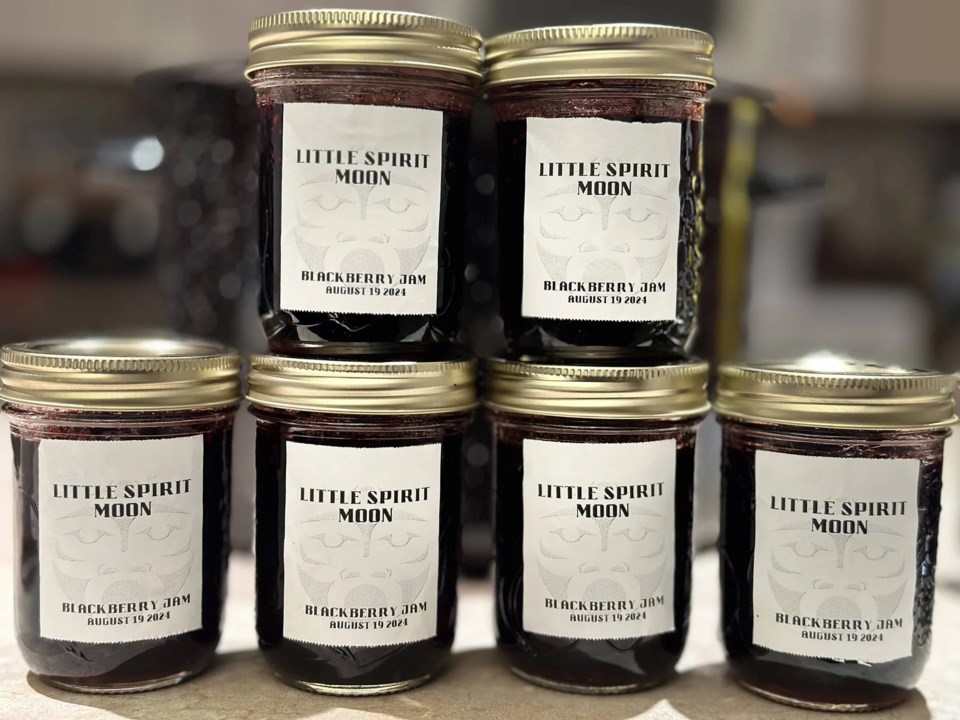It’s been a decade and a half since award-winning 麻豆社国产Nation chef Paul Natrall enrolled in an Indigenous cooking course at Vancouver Community College. All these years later, it’s a pair of field trips he and his fellow students took that still vividly sticks out in his mind.
“They brought us to Musqueam [territory] to see some of their traditional smoke houses. That was huge to be able to see some of those things still being practiced. We also went up to Mount Currie on special occasions when they would prepare wind-dried salmon,” he said.
Now, instead of students going to the knowledge source, Natrall wants to bring it to them. The man behind , Vancouver’s first Indigenous food truck, is taking his wealth of experience on the road with a new venture called Little Spirit Moon. Named after the 13 moons in the lunar calendar recognized by many Indigenous cultures, the project is a travelling classroom of sorts. Outfitting a trailer with a dehydrator, freeze dryer, and smoker, alongside equipment for canning and pickling, Natrall plans to visit schools, offices, and organizations interested in learning traditional and contemporary Indigenous culinary techniques. That will include recipes for his trademark bannock, dried meats, homemade jams, salsas, and spice rubs.
“It’s super exciting,” he said. “The whole goal is to be able to share the knowledge and experience I gained from the last 15 years within our community, hoping to connect with people that aren’t connected to their communities, who can’t go to their homelands and learn from their families and knowledge keepers there.”
Like so many aspects of Indigenous culture in Canada, colonization severed First Nations from their culinary traditions. From 1885 to 1951, the potlatch, a traditional ceremony involving feasts, dancing and singing that was integral to the social hierarchy and governance of Canada’s Indigenous Peoples, particularly on the Northwest Coast, by the federal government, who saw it as un-Christian and a barrier to assimilation. Settlers took control of salmon distribution on the West Coast. Buffalo were nearly wiped off the Prairies, Ottawa’s attempt at starving the First Nations that relied on them.
The disconnection manifested in smaller, but no less damaging ways, as well. Traditional food knowledge was lost along the way. Teachings about wild plants. Family recipes long forgotten.
“There’s a huge gap between Indigenous food ways and all the other cuisines from around the world,” said Natrall. “There was a lot that was lost with the trauma. I’m just super happy to be a part of the Indigenous culinary world that is rebuilding the food culture. I see a lot of successful Indigenous chefs across the country and I talk to a lot of them and really just cheer them on. We are stepping up and taking our place in the culinary world.”
With only two brick-and-mortar Indigenous restaurants across the entire Lower Mainland—Salmon n’ Bannock Bistro in Vancouver and Tradish’s The Ancestor Café in Langley—there are few opportunities for the average diner to sample First Nations food, let alone know how to cook it. Through his Mr. Bannock food truck and catering service, as well as his role as chair of , Natrall is well positioned to change that. And he’s fully aware it’s going to take more than just food to do so.
“It’s not just cooking. You have to be able to tell stories and have a bigger presence on social media, too. When I go travel and talk with people, there are a lot of great cooks out there, but if they can’t share stories, communicate and talk, that's not enough,” he said. “You have to have the hustle and drive, and hopefully I can show people, if I can do it, they can too.”
Learn more at .

